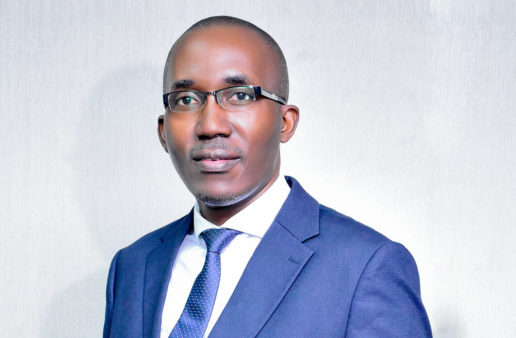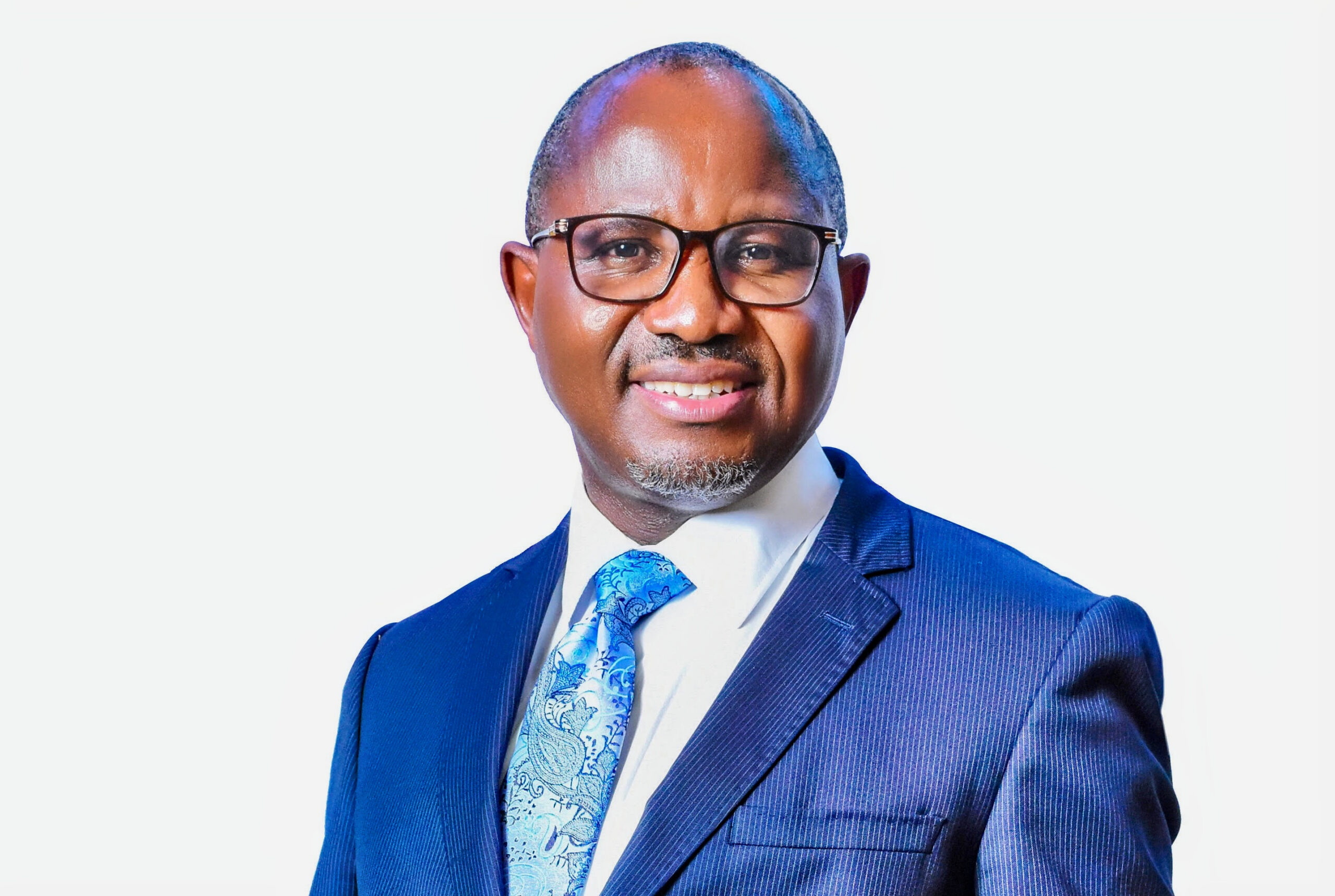
On the sidelines of the just-ended Annual Bankers Conference, CEO East Africa Magazine’s Paul Murungi caught up with Fabian Kasi, Managing Director of Centenary Bank, for a quick dipstick on the bank’s performance and wider industry trends.
In this candid exchange, Kasi reflects on Centenary’s strong first-half 2025 results, the sectors driving recovery, and the headwinds of interest rates, operational costs, and cyber risk.
He also shares how personal discipline and a balanced lifestyle help him navigate the pressures of leading one of Uganda’s top-performing banks.
How have things been going financially for Centenary Bank so far in the first half of 2025?
We’ve been growing steadily, our current balance sheet at over UGX 8 trillion, last year we closed at about UGX 7.3 trillion.
We’re happy with the performance so far, and I hope we will hang in there and be able to close on a much stronger note at the end of the financial year.
Profits are definitely growing, we’re running a sustainable business, and that means being able to return a very good bottom line, and we’ve been doing it year in, year out.
Loans have also grown at about 4 trillion, and our deposits are growing at 5.5 trillion. We see businesses are rebounding, which is a good sign for the economy.
Of course we’re going into a period of elections where we know there are uncertainties and volatilities. We hope we will be able to manage them and close the year on a much stronger note.
Which factors do you attribute to this financial growth?
I believe what is pushing our growth is the kind of service we provide. We’re consistently improving on our customer experience.
We’re designing products and investing in technology. This year, we hope to implement a new core banking system which should be able to offer a seamless experience.
We’ve introduced an e-channel where people can interact with our ATM network and mobile banking.
These actions will go a long way in improving on the uptake of our services.
In the post-pandemic period, which sectors have recovered most strongly and contributed meaningfully to Centenary Bank’s performance?
Trade and commerce are rebounding very well. Our DNA is in agro-financing. We’re one of the few banks that has been emphasising lending to all value chains of agriculture.
About 18 percent of our lending is going into agriculture. We’ve seen yield improvement for key cash crops such as coffee, cocoa and of course we’ve been having problems with tea, but it will also be able to rebound.
Other people have grown maize, bananas and others are into cattle rearing. These are some of the areas where we’ve seen production increase based on what our customers are growing. And that’s why inflation is stabilising.
On the downside, we have to prepare for climatic changes. All those are issues that we’re cognizant of as we manage our business.
Related
 Old Mutual Investment Group Appoints Former NSSF MD Richard Byarugaba as Board Chairman; names Charles Ernest Hamya to its Board
Old Mutual Investment Group Appoints Former NSSF MD Richard Byarugaba as Board Chairman; names Charles Ernest Hamya to its Board
Of course oil and gas has also improved as investments move into exploration, production and the oil refinery.
Most sectors have rebounded; services, schools, hotels, tourism is another source of foreign exchange and banks have tried to prioritise it. Let’s take into account the sectors that government has prioritised, and that gives us a direction where to focus.
Are there any challenges?
The challenges will always be there, especially the costs of operations, electricity, data and occupancy. These are still a challenge because they make our services not as affordable as we would have wanted them to be.
Ofcourse, we’re seeing the interest rates dropping probably not at the rate we would have wanted, but we’re trying to ensure they continue dropping if we can manage our costs.
We want to work on the cost of financing because that’s another element that drives our pricing for loans. We want to work with customers to ensure that when they borrow they pack back in time; credit risk is an element that affects our pricing.
We’ve seen Ugandans borrowing and not paying in good time; when they don’t pay, it affects the costs of our loans which are subsequently passed on.
We understand that monetary policy is a key element in determining what banks charge for loans. If the government borrows from the private sector, other operators within the private sector are crowded out which affects the interest rates charged.
We’ve seen the government increase its domestic borrowing, we hope that will be able to stabilise so that banks focus on lending to other sectors at a good price.
What keeps you awake?
What keeps us awake as leaders in this banking sector is cybersecurity. We’ve digitised and we’ve automated but as we automate, the risk of cyberfraud increases. That’s why we have massive investment in security systems.
But still as we invest in our security systems, we need our customers sensitised on how to safeguard their transactions.
Fraudsters are trying to get ahead of the curve so it is incumbent upon us to get ahead of them. Otherwise, it is still a risk and we’re still concerned.
How do you handle the daily pressures of managing one of Uganda’s top-performing banks? Do you have any personal routines like golfing, reading, or taking quiet time to unwind and recharge?
There are a couple of things one can do, you can’t worry about bank operations all the time.
I’m a Rotarian so I’m actively involved in Rotary activities, and the associated networks within that space.
I also go to church, it’s a spiritual thing to work on, and life is about priorities, otherwise you can’t focus on work alone and forget your spiritual and health needs.
I do exercises on a regular basis which is non-negotiable. I have a good support system right from the institutions we work with, and the family is an aspect that has to be balanced with, and they have to support you in all endeavors.
Paul Murungi
Paul Murungi is a Ugandan Business Journalist with extensive financial journalism training from institutions in South Africa, London (UK), Ghana, Tanzania, and Uganda. His coverage focuses on groundbreaking stories across the East African region with a focus on ICT, Energy, Oil and Gas, Mining, Companies, Capital and Financial markets, and the General Economy.
His body of work has contributed to policy change in private and public companies.
Paul has so far won five continental awards at the Sanlam Group Awards for Excellence in Financial Journalism in Johannesburg, South Africa, and several Uganda national journalism awards for his articles on business and technology at the ACME Awards.
- @https://x.com/paulmurungiug
- Send me an email!
Related Stories

10 Key Facts You Need to Know About Kampala’s Property Market in H1 2025

Inside the Minds of Uganda’s Top Bank CEOs: Reflections, Fears, and the Future of Banking

Before the Grey Hair Comes: Retirement Planning is a must do

Why Jumia Must Master the Logistics Challenge to Win
You May Also Like
Old Mutual Investment Group Appoints Former NSSF MD Richard Byarugaba as Board Chairman; names Charles Ernest Hamya to its Board
PostBank and UBA’s Julius Kakeeto on Banking’s Digital Future and the Remittance Opportunity
Trump Aid Cuts Reshape Kampala’s Housing Market Demand as Asian Expatriates Overtake Western Tenants
Behind New Vision’s Numbers is a Business Model Under Strain
Related posts
Meet the Author

Gillion is a multi-concept WordPress theme that lets you create blog, magazine, news, review websites. With clean and functional design and lots of useful features theme will deliver amazing user experience to your clients and readers.
Learn moreCategories
- Africa (12,123)
- Business (562)
- Design (3)
- East Africa (739)
- Guide (7)
- Interior (1)
- Life (1)
- Lifestyle (5)
- Motivation (4)
- People (3)
- Photography (2)
- Rest of Africa (731)
- Review (1)
- Science (72)
- Style (1)
- Travel (5)
- World (173)
Subscribe Now
* You will receive the latest news and updates on your favorite celebrities!



